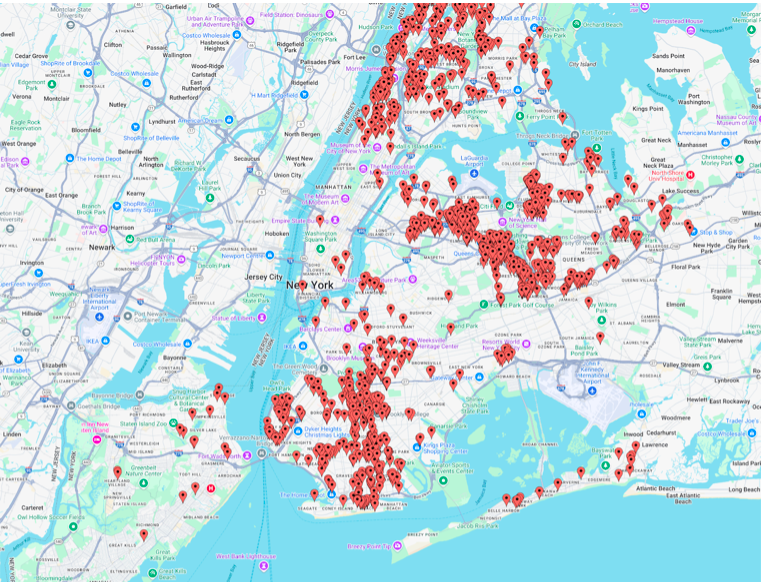
Courtesy Green Co-op Council
A new bill, Intro 654, proposed to the NYC Council aims to enable green improvements in over 1,000 co-ops by providing tax breaks for necessary upgrades, benefiting more than 166,000 families and supporting compliance with Local Law 97.
A new bill proposed to the New York City Council could pave the way for green improvements to over 1,000 co-ops throughout the city. Intro 654, spearheaded by City Council Housing Chair Pierina Sanchez and Councilmember Lynn Schulman, aims to fortify city housing against climate change while enhancing comfort for residents.
The legislation builds on the “Affordable Housing Rehabilitation Program” passed by New York State in 2023, but it requires City Council approval to take effect in New York City. If enacted, the program would provide significant tax breaks to eligible co-op and condo owners, facilitating vital upgrades in line with Local Law 97, which mandates substantial reductions in building emissions.
“Today, we stand strong in support of Intro 654, a forward-thinking bill that supports affordable housing and fights climate change. This legislation will allow certain buildings to receive crucial property tax abatements, helping them comply with Local Law 97,” said NYC City Council Member Shaun Abreu. “This is a significant opportunity for many buildings in our district that need assistance in meeting these important environmental standards. Together, we can create a sustainable future, ensuring cleaner air and healthier homes for all our community members.”
With over 166,000 families poised to benefit, the initiative is seen as a crucial step toward improving housing affordability in a city grappling with rising costs. Advocates believe the bill will not only upgrade housing but also ease financial burdens for low- and middle-income residents.
“My neighbors and I want to make improvements and comply with Local Law 97 for the long-term sustainability and health of our building. The assistance Intro 654 would provide would make a BIG difference for those of us with limited incomes – we’d save more than $50,000 a year! I urge the City Council to pass this bill,” said Elaine O’Brien, co-op shareholder in Queens.
Eligible buildings under the proposed program would include those with an average assessed value under $45,000 per unit, those in the Mitchell-Lama program, and mutual housing companies. Work must be completed between June 30, 2022, and June 30, 2026. Data from the Mayor’s Office indicates at least 1,318 co-ops and condos would qualify for tax relief, with 83% needing upgrades by 2030.
“As NYC faces the intersecting crises of rising housing unaffordability, evictions and homelessness, with low and middle-income New Yorkers leaving the city in record numbers, the preservation and upgrading of the housing we do have is of paramount importance. That is why I am proud to have introduced Int. 654, reauthorizing the J51 tax incentive, which could save more than 166,000 families in co-ops across the city thousands of dollars each year, while enabling buildings across the city to comply with the ambitious and necessary climate goals of Local Law 97. Local Law 97 is the nation’s most aggressive municipal climate law, targeting emissions reduction that can make our communities easier to live and breathe in. With Int. 654, we can upgrade our housing, put money back into the pockets of everyday New Yorkers, and green our city. I urge my colleagues to join me in supporting and passing this critical legislation” said NYC Council Housing and Buildings Chair Pierina Sánchez.
Key boroughs expected to benefit include Brooklyn, Queens, and the Bronx, with the largest concentrations of eligible buildings located in neighborhoods like Forest Hills and Riverdale.
Sample savings from the tax abatement could significantly alleviate the financial burden of compliance for co-ops. For instance, an 83-unit co-op in Jackson Heights could see property tax reductions of over $53,000 annually, facilitating essential energy efficiency upgrades.
The Council of New York Cooperatives & Condominiums (CNYC Inc.) has supported the climate goals of Local Law 97 (LL97) since its inception. Improving the energy efficiency and resiliency of New York City’s housing, reducing New York’s reliance on fossil fuels, and cutting carbon emissions are critical collective goals, necessary not only for improving the quality of life of future generations but also to ensure existing housing can withstand further flash floods, wind-driven rain, and multiple days of high temperatures. But many cooperative and condominium homeowners are already under financial pressure from the ongoing increases in their housing expenses, and they need help paying for their building upgrades. CNYC welcomes and supports Intro 0654, as an urgently needed first step,” said Rebecca Poole, Director of Membership, CNYC Inc.
To maximize the effectiveness of this program, advocates are urging the City Council to expedite the legislation, streamline application processes, and explore upfront financing options for co-ops struggling with initial costs. The Green Co-op Council emphasizes the need for swift action to support these crucial upgrades and meet the city’s climate goals.


